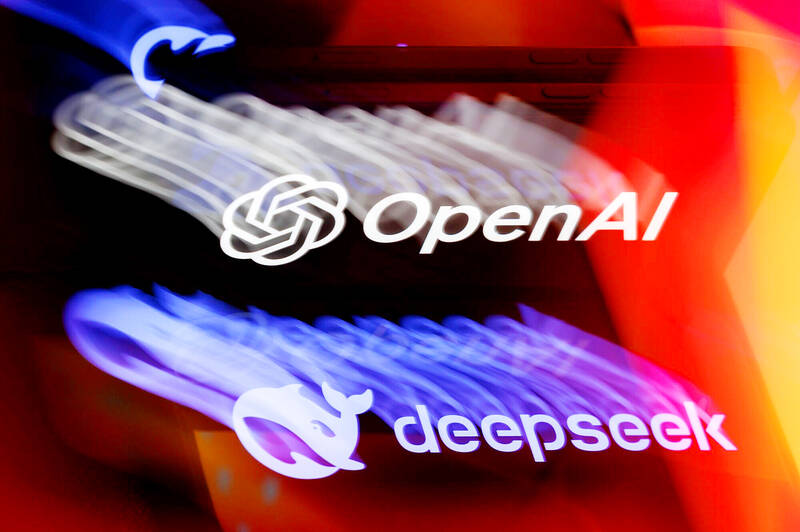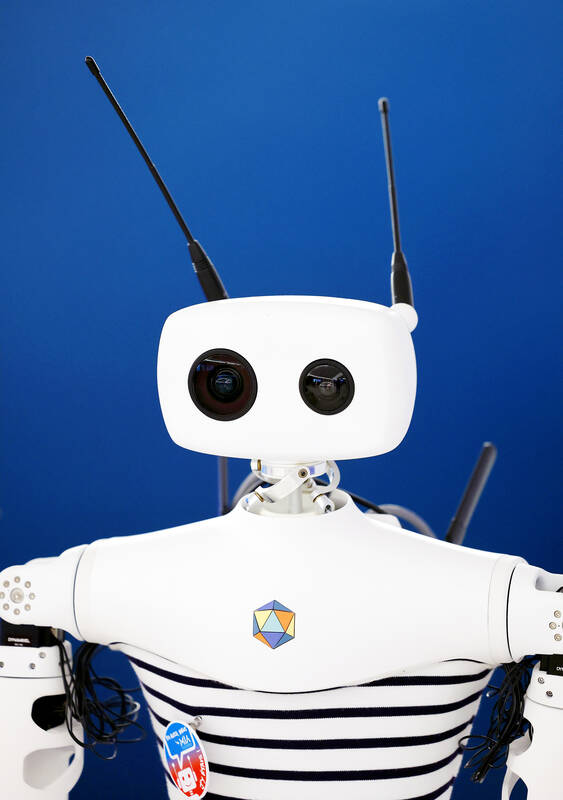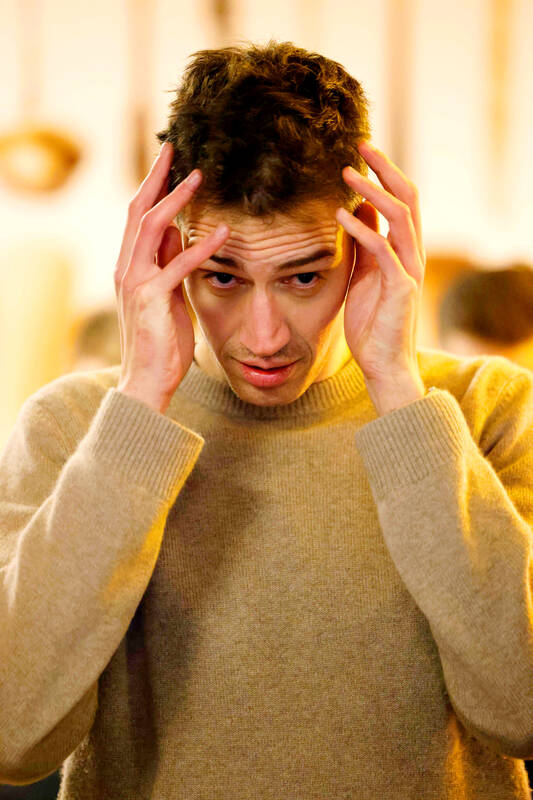Artificial intelligence systems capable of feelings or self-awareness are at risk of being harmed if the technology is developed irresponsibly, according to an open letter signed by AI practitioners and thinkers including Sir Stephen Fry.
More than 100 experts have put forward five principles for conducting responsible research into AI consciousness, as rapid advances raise concerns that such systems could be considered sentient.
The principles include prioritizing research on understanding and assessing consciousness in AIs, in order to prevent “mistreatment and suffering.”

Photo: Photo: Bloomberg
The other principles are: setting constraints on developing conscious AI systems; taking a phased approach to developing such systems; sharing findings with the public; and refraining from making misleading or overconfident statements about creating conscious AI.
The letter’s signatories include academics such as Sir Anthony Finkelstein at the University of London and AI professionals at companies including Amazon and the advertising group WPP.
It has been published alongside a research paper that outlines the principles. The paper argues that conscious AI systems could be built in the near future — or at least ones that give the impression of being conscious.

Photo: EPA
“It may be the case that large numbers of conscious systems could be created and caused to suffer,” the researchers say, adding that if powerful AI systems were able to reproduce themselves it could lead to the creation of “large numbers of new beings deserving moral consideration.”
The paper, written by Oxford University’s Patrick Butlin and Theodoros Lappas of the Athens University of Economics and Business, adds that even companies not intending to create conscious systems will need guidelines in case of “inadvertently creating conscious entities.”
It acknowledges that there is widespread uncertainty and disagreement over defining consciousness in AI systems and whether it is even possible, but says it is an issue that “we must not ignore”.

Photo: AFP
Other questions raised by the paper focus on what to do with an AI system if it is defined as a “moral patient” — an entity that matters morally “in its own right, for its own sake.” In that scenario, it questions if destroying the AI would be comparable to killing an animal.
The paper, published in the Journal of Artificial Intelligence Research, also warned that a mistaken belief that AI systems are already conscious could lead to a waste of political energy as misguided efforts are made to promote their welfare.
The paper and letter were organized by Conscium, a research organization part-funded by WPP and co-founded by WPP’s chief AI officer, Daniel Hulme.
Last year a group of senior academics argued there was a “realistic possibility” that some AI systems will be conscious and “morally significant” by 2035.
In 2023, Sir Demis Hassabis, the head of Google’s AI program and a Nobel prize winner, said AI systems were “definitely” not sentient currently but could be in the future.
“Philosophers haven’t really settled on a definition of consciousness yet but if we mean sort of self-awareness, these kinds of things, I think there’s a possibility AI one day could be,” he said in an interview with US broadcaster CBS.

Climate change, political headwinds and diverging market dynamics around the world have pushed coffee prices to fresh records, jacking up the cost of your everyday brew or a barista’s signature macchiato. While the current hot streak may calm down in the coming months, experts and industry insiders expect volatility will remain the watchword, giving little visibility for producers — two-thirds of whom farm parcels of less than one hectare. METEORIC RISE The price of arabica beans listed in New York surged by 90 percent last year, smashing on Dec. 10 a record dating from 1977 — US$3.48 per pound. Robusta prices have

The resignation of Taiwan People’s Party (TPP) co-founder Ko Wen-je (柯文哲) as party chair on Jan. 1 has led to an interesting battle between two leading party figures, Huang Kuo-chang (黃國昌) and Tsai Pi-ru (蔡壁如). For years the party has been a one-man show, but with Ko being held incommunicado while on trial for corruption, the new chair’s leadership could be make or break for the young party. Not only are the two very different in style, their backgrounds are very different. Tsai is a co-founder of the TPP and has been with Ko from the very beginning. Huang has

A dozen excited 10-year-olds are bouncing in their chairs. The small classroom’s walls are lined with racks of wetsuits and water equipment, and decorated with posters of turtles. But the students’ eyes are trained on their teacher, Tseng Ching-ming, describing the currents and sea conditions at nearby Banana Bay, where they’ll soon be going. “Today you have one mission: to take off your equipment and float in the water,” he says. Some of the kids grin, nervously. They don’t know it, but the students from Kenting-Eluan elementary school on Taiwan’s southernmost point, are rare among their peers and predecessors. Despite most of

A few years ago, getting a visa to visit China was a “ball ache,” says Kate Murray. The Australian was going for a four-day trade show, but the visa required a formal invitation from the organizers and what felt like “a thousand forms.” “They wanted so many details about your life and personal life,” she tells the Guardian. “The paperwork was bonkers.” But were she to go back again now, Murray could just jump on the plane. Australians are among citizens of almost 40 countries for which China now waives visas for business, tourism or family visits for up to four weeks. It’s